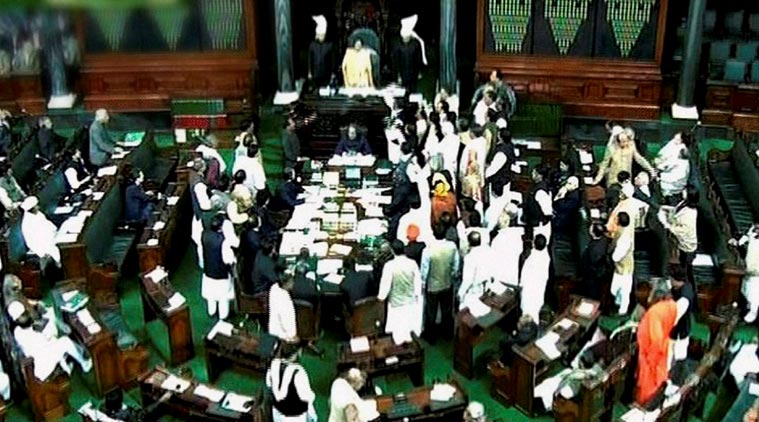Latest News
Can Aadhar Act Pass As A Money Bill?

One of the most significant issues before the SC in the Aadhar case was the passing of the Aadhaar Act as a Money Bill. A Money Bill under Article 110 of the Constitution deals only with items referred to in Article 110(1) and has to be so certified by the Speaker of the Lok Sabha under Article 110(3). As a consequence of this certification, the role of the Rajya Sabha is ousted completely and no amendments can be made to the bill that is passed by the Lok Sabha. Quite simply, government does not shut down due to a failure to pay its bills or meet expenses as the legislation is held back by the Rajya Sabha.
Standing up for principle
Since Article 110(3) provides that the certification by the Speaker is final, the question that arose was whether the same was subject to judicial review and if so, was the Aadhaar Act legitimately passed as a Money Bill. There was a third issue for determination as well that what would be the consequence of the Aadhaar Act being improperly certified as a money bill. Whether, only a part or would be the consequence of the Aadhaar Act being improperly certified as a money bill or whether the entire act fall or only a part.
In the judgment, all five judges agreed unanimously that the certification of a bill as a money bill was capable of judicial review. The judgments of Justice Chandrachud and Justice Bhushan go on to hold that two earlier judgments to the contrary—Siddiqui and Jaiswal cases—are bad in law. The majority and both the other judgments discuss the case law in India over clauses that exclude the jurisdiction of the courts and correctly record that in India the Constitution is supreme and there is no private fiefdom given to any constitutional authority. Further, the Court persuasively holds that the well-founded basis for a bar to judicial review of the decisions of the speaker is restricted to matters of procedure. Hence, while the Court should not meddle in the workings of legislature and the decisions of the speaker, it can still look behind this cloak in matters of, “substantial illegality.
A failure in application
After the court establishes the permissibility of judicial review, the unanimity of opinion splinters on the application of Article 110(1) to the Aadhaar Act. The majority and Justice Bhushan are of the view that Section 7 of the Aadhaar Act, which provides for the use of the scheme for benefits and subsidies by the Government, as its main objectives which falls within the parameters of the classes that can be legislated as a Money Bill. Justice Chandrachud in his magisterial dissent differs and holds that the Act does not qualify as a Money Bill and is thus bad in its entirety. He forensically examines the provisions of the Aadhar Act, the chequered history of its enactment in Parliament and holds that items incidental to the main object cannot be widely interpreted to make redundant the word “only” in Article 110(1
Questions remain
While the majority judgment has declared that the Aadhaar Act has been validly passed as a money bill, the majority judgment does not clearly lay down standards for the interpretation of Article 110(1) and how future money bills are to be evaluated by the courts. The dissent of Justice Chandrachud is far more lucid and presents a clearer picture for future courts to consider.
Firstly, the provisions of Article 110(1) are to be interpreted strictly and narrowly. This is in keeping with the words used and is in conformity with constitutional history and the reason why a special procedure was enacted for money bills in the first place.
Secondly, the pith and substance test used to interpret legislative lists has no place in this analysis. Either the Act deals “only” with a money bill item or it does not. There can be no severability.
Thirdly, the “incidental” items mentioned in Article 110(1)(g) are literally that- incidental to the main provision. Too wide an interpretation of this clause would render the rest of the Article infructuous.
Fourthly, the provisions of each enactment must be carefully examined to see their true import and legislative history of the enactment may be taken recourse to in order to avoid any future “fraud on the Constitution”, as Justice Chandrachud has termed the Aadhar Act based on his lucid and forensic analysis of these factors and his concern for the health of our democratic institutions.



































































































